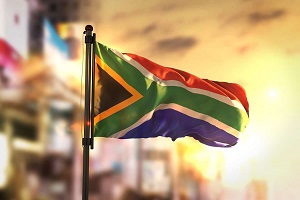Neelam Rahim | neelam@radioislam.co.za
3-minute read
01 May 2023 | 20:02 CAT

Photo credit: South African
Thursday, South Africa celebrated the birth of a democratic country. On April 27, 1994, South Africans of all races, languages, and creeds stood in long winding queues for the first time to exercise their rights to vote for a democratic government. But 29 years later, the meaning of freedom in South Africa has changed, especially regarding climate issues.
The environmental group Green Connection’s Liz McDade discusses more on what freedom means to the environment with Radio Islam International.
McDade said while there is a constitution where environmental rights ought to be realised by South Africans, there is the harsh reality of climate change and the issue of climate justice.
“We’ve fought against apartheid, struggled and have got a constitution which includes the environmental right in which freedom is supposed to mean a better life for all and the climate crisis is turning that world upside down,” she says.
The country faces an energy crisis that is worsening daily, making it reliant on coal, an energy source from decades ago amongst outdated technologies.
According to McDade, in the intervening decades, there has been the introduction of renewable energy of solar, wind, biomass and different technology able to generate energy more sustainably.
Meanwhile, climate change and its effects are becoming increasingly urgent to address; however, it does get ignored by the government and many people who need to be made aware of the climate change effects.
In response to those people saying it is not an energy that needs to be given priority, McDade argues the lack of understanding of the signs of climate change and its local impacts, including changes in weather patterns that lead to floods, suffering and food insecurity.
Listen to the full interview with host Annisa Essack on Radio Islam’s podcast.







0 Comments